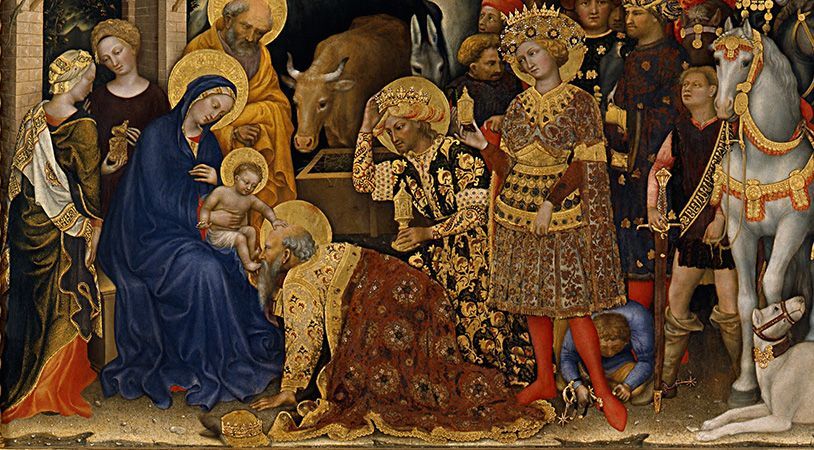Guardian Angels, part 2
Three Steps of Studying the Bible (Part 2)
In last month’s article we covered the three basic steps of sound Bible study. Following these steps is how we study the Bible inductively. Inductive Bible study is the process of building up your theology passage by passage, one doctrine at a time. The opposite approach is to start with your theology and then sort the passages according to the doctrinal categories that you bring to the text. In reality, each of us always brings some of our theology to the text. There is no such thing as a “blank slate” Bible reader. We all have to start somewhere, and our different starting points are determined by our preexisting beliefs, attitudes, assumptions, intuitions, and mindset. These things are called presuppositions, and we carry them with us in everything we do. Our presuppositions are always running in the background, like software on your computer. They tell us how to filter, process, experience, and interpret all of life.
This is no less true when we study the Bible. We all have presuppositions about the Bible, about God, about Jesus, and so on. In other words, we all have a personal theology running in the background as we try to read the Bible, whether we realize it or not. The most important thing we can do as Bible readers is become keenly aware of our presuppositions and test them for consistency against the Bible itself. How do you do that? Inductive Bible study. Bringing our theology to the Bible is unavoidable, but that is only a bad thing if our theology is bad. So we have to challenge and change our theology as needed in order to bring our thinking more and more in line with the Bible. The three basic steps of inductive Bible study are designed to help us interrogate our presuppositions, discarding falsehoods and building up more biblical beliefs.
So what does the Bible teach about guardian angels? We need to begin with a definition so that we know what we are looking for. Guardian angels are heavenly beings assigned by God to care for, protect, and guide each individual person. We all have presuppositions about guardian angels, whether we realize it or not, but are they consistent with Scripture? Using the three steps, let’s find out.
The first step is easy. There is no direct teaching in the Bible on this topic. What about step two, indirect teaching? Remember that indirect teaching involves explicit statements and references that allude to the topic without discussing it at length, usually in a context where some other topic is being directly discussed. These explicit allusions come in three forms: we are looking for any place in Scripture that refers to guardian angels by name; by synonym; or by the general concept. Now, there are no verses that refer to guardian angels by name; however, some passages seem to refer to guardian angels by synonym and concept.
The two clearest passages that seem to refer to guardian angels by synonym are in the Psalms. Psalm 91:11 says God “will command his angels concerning you to guard you in all your ways.” Angels that God sends to guard you wherever you go—sure sounds like guardian angels. Psalm 34:7 says the “angle of the Lord encamps around those who fear him and delivers them.” That also sounds like a guardian angel. But do these verses say that everyone is assigned one of these angelic protectors? Were these angels only assigned to a particular person or group in the past for some special purpose that only applied to them? Was the assignment for a limited time only? Was it only for Israelites? Does this apply to all people today? It isn’t clear.
Other passages are suggestive of the concept of guardian angels but not conclusive. Matthew 18:10 mentions angels that belong to “little ones,” meaning humble Christians. Acts 12:15 mentions Peter’s angel but without further comment. Daniel 12:1 names the angel Michael as the protector or guardian of Israel but says nothing about guarding individuals. Genesis 48:15-16 refers to the angel who helped rescue Jacob from evil, and Genesis 24:7 and 40 speak of an angel who will temporarily help Abraham’s servant find a wife for his son Isaac. Hebrews 1:14 describes angels as spirits that God sends to minister to his people. Finally, Job 5:1 and 33:23-24 refer to angels or “holy ones” who may intervene on a person’s behalf to save them from death.
As you can see, the indirect teaching is very slim, and all the passages are debatable. What about step three? Is there any implicit teaching we can draw from these or any other statements or teachings in the Bible? In my opinion, it is very difficult to infer or deduce any sure conclusions from these texts that logically implies the doctrine of guardian angels as we have defined it above. My conclusion is this: I think it is clear from these biblical passages that God uses his angels to serve and protect his people in various ways, and I think we should expect that God may send an angel to guard us or intervene in our behalf at various moments in our lives. In that sense, yes, the Bible does teach that there are guardian angels. However, the Bible does not seem to teach that every individual is assigned a specific angel as his or her special guardian. That belief is not taught in Scripture, either directly, indirectly, or implicitly. But what do you think?
Grace and peace,
Pastor Wesley
The Pastor's Pen


Glorifying Christ in Joyful Community through Worship, Fellowship, and Witness
Useful Links
Contact Info
Want to support our Ministry?
All rights reserved.
“Scripture quotations are from the ESV® Bible (The Holy Bible, English Standard Version®), copyright © 2001 by Crossway, a publishing ministry of Good News Publishers. Used by permission. All rights reserved. The ESV text may not be quoted in any publication made available to the public by a Creative Commons license. The ESV may not be translated in whole or in part into any other language.”
Created and Hosted with BUILD by One Eleven





